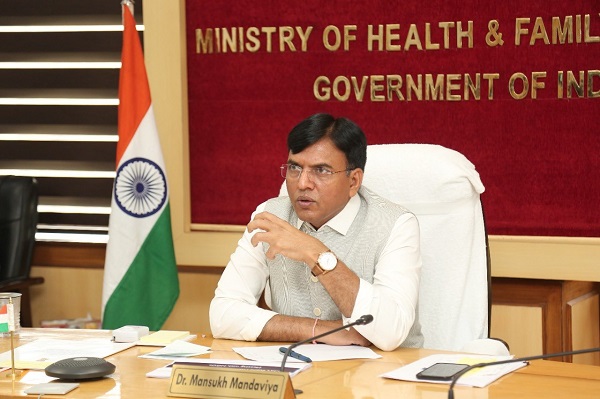New Delhi, (Asian independent) Union Health Minister Mansukh Mandaviya on Thursday released the National Report of the fifth round of National Family Health Survey (NFHS-5) at the ‘Swasthya Chintan Shivir’ being held at Gujarat’s Vadodara.
Gujarat Chief Minister Bhupendra Patel and Union Minister of State for Health Dr. Bharati Pravin Pawar were also present on the occasion.
The report comprises of detailed information on key domains of population, health and family welfare and associated domains like characteristics of the population, fertility, family planning, infant and child mortality, maternal and child health, nutrition and anaemia, morbidity and healthcare, women’s empowerment etc.
The NFHS-5 survey work has been conducted in around 6.37 lakh sample households from 707 districts of the country from 28 States and 8 UTs, covering 7,24,115 women and 1,01,839 men to provide dis-aggregated estimates up to district level.
Its scope had expanded from the earlier round (NFHS-4) by adding new dimensions such as death registration, pre-school education, expanded domains of child immunisation, components of micro-nutrients to children, menstrual hygiene, frequency of alcohol and tobacco use, additional components of non-communicable diseases (NCDs), expanded age range for measuring hypertension and diabetes among all aged 15 years and above, which will give requisite inputs for monitoring and strengthening existing programmes and evolving new strategies for policy intervention.
The NFHS-5 shows an overall improvement in SDG indicators in all states and UTs. The extent to which married women usually participate in three household decisions – health care for herself, making major household purchases, visit to her family or relatives – indicates that their participation in decision making is high, ranging from 80 per cent in Ladakh to 99 per cent in Nagaland and Mizoram.
The prevalence of women having a bank or savings account that they use has increased from 53 to 79 per cent in the last 4 years, said the Health Ministry in a statement.
As per the report, between NFHS-4 and NFHS-5, the use of clean cooking fuel (44 per cent to 59 per cent) and improved sanitation facilities (49 per cent to 70 per cent), including a hand-washing facility with soap and water (60 per cent to 78 per cent) have improved considerably.
The NFHS-6 scheduled to be conducted during 2023-24 propose to cover new areas like Covid-19 hospitalisation and distress financing, Covid-19 vaccinations, Direct Benefit Transfers (DBT) under various welfare schemes initiated by the Centre, migration, utilisation of health services – health and wellness centres, health insurance etc, said the ministry in the report.








